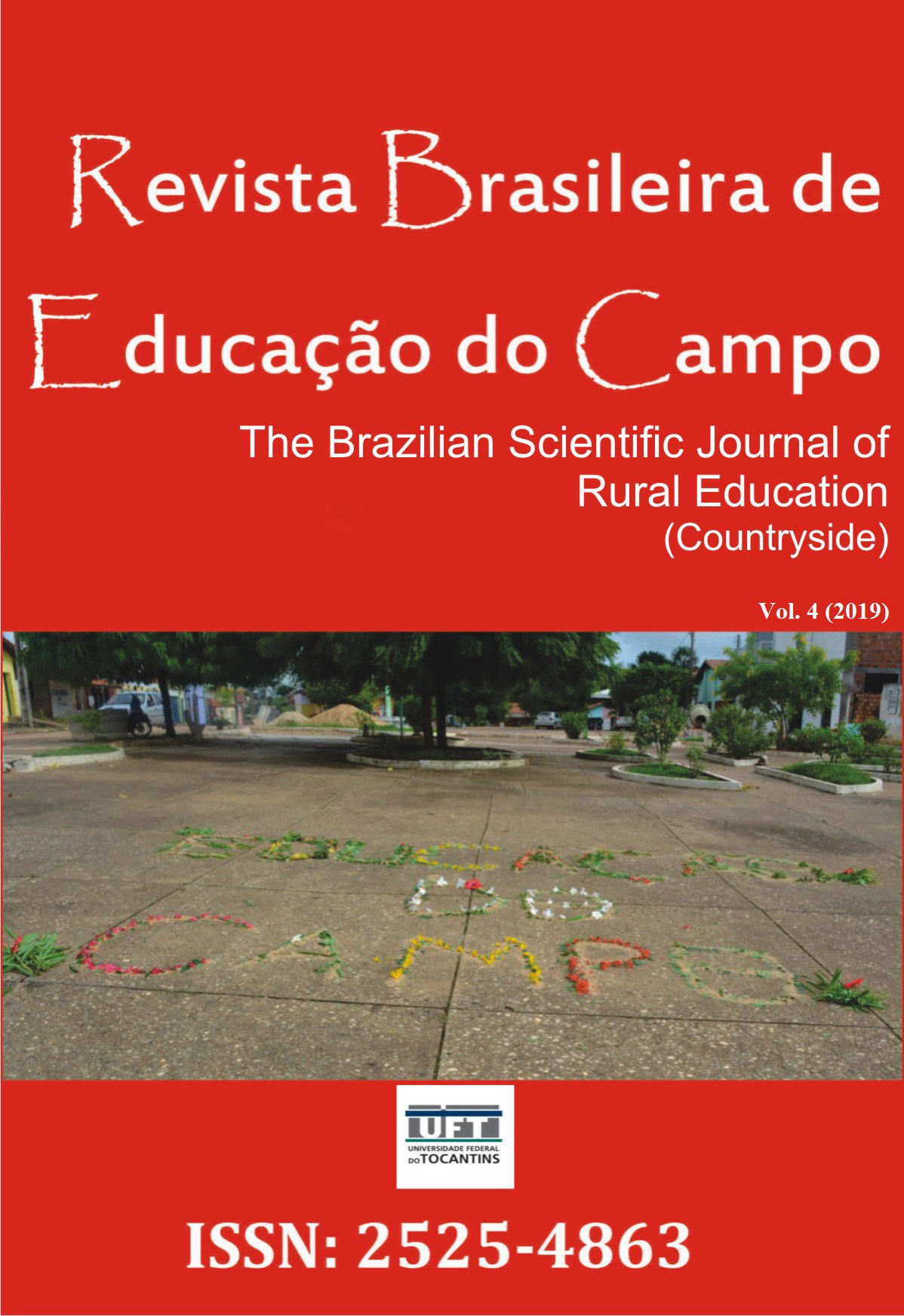The culture as resistance to the agricultural structure: The case of the family farmers in the Apiaú-RR Colony
DOI:
https://doi.org/10.20873/uft.rbec.v4e6389Abstract
ABSTRACT. The article proposes to reflect on the social, political and cultural changes in the field, considering that the rural area presents a contradiction in the face of public policies in recent years. The objective is to emphasise the importance of the culture of family member as resistance to agricultural structure in the field before the agrarian policies that are legitimating the expansion of capital. Base on the discussion according to authors that debate about the agrarian concern, among them: Wanderley (2009), Prado Júnior (2000), Ianni (2004) and the concept of culture, such as: Canclini (2015), Thompson (1998), Grignon (2009) and Eagleton (2011), highlighting the importance of the culture of the subjects in the field in opposition to the ruling class. The methodology used was bibliographic and empirical, through testimonies of the family farmers in the analysis of the results. It evidences that the agrarian policies seek the regulation of the subjects of the field to adapt to the landowner model, while the culture constructed through the social relations of the field reveals contradiction in the agrarian culture, becoming a tool of resistance to land ownership concentration.
Downloads
Literaturhinweise
Becker, B. K. (2009). Amazônia: geopolítica na virada do III milênio. Rio de Janeiro: Garamond.
Banco Central do Brasil. (2014). Os créditos do PRONAF e a agricultura familiar no Brasil. Brasília-DF: IE.
Brasil. (2003). Ministério da Agricultura e do Abastecimento. PRONAF – Programa Nacional de Fortalecimento da Agricultura Familiar. Brasília, DF.
Canclini, N. G. (2015). Culturas Híbridas: Estratégias para Entrar e Sair da Modernidade. São Paulo: Editora da Universidade de São Paulo.
Cotrin, I. (2011). Karl Marx: a determinação ontonegativa originária do valor. São Paulo: Almeida.
Dataluta. (2017). Banco de Dados da Luta pela Terra: Relatório 2016. Núcleo de Estudos, Pesquisas e Projetos de Reforma Agrária-NERA/UNESP, São Paulo.
Eagleton, T. (2011). A ideia de cultura. São Paulo: editora Unesp.
FAO. (2016). Organização das Nações Unidas para a Alimentação e a Agricultura. América Latina e o Caribe: Panorama da Segurança Alimentar e Nutricional.
Feliciano, C. A. (2006). Movimento camponês rebelde: a reforma agrária no Brasil. São Paulo: Contexto.
Feitosa, O. L. (2015). Os impactos do PRONAF aos agricultores familiares na colônia do Apiaú em Mucajaí-RR (Dissertação de Mestrado). Universidade Federal de Roraima, Roraima.
Grignon, C. (2009) Cultura dominante, cultura escolar e multiculturalismo popular. In Silva, T. T. (Org.). Alienígenas na sala de aula: uma introdução aos estudos culturais em educação (pp. 178-189). Petrópolis/RJ: Vozes.
Ianni, O. (2004). Origens Agrárias do Estado Brasileiro. São Paulo: Brasiliense.
Lustosa, M. G. O. P. (2012). Reforma agrária à brasileira: política social e pobreza. São Paulo: Cortez.
Marx, K. (2017). O Capital: crítica da economia política: o processo de produção do capital. São Paulo: Boitempo.
Martins, J. S. (2010). O cativeiro da terra. São Paulo: Contexto.
Martins, J. S. (2000). Reforma Agrária: O Impossível Diálogo. São Paulo: Editora da Universidade de São Paulo.
Mello, L. G. (2002). Antropologia cultural: iniciação, teoria e temas. Petrópolis: Vozes.
Pereira, J. M. M. (2010). A política de reforma agrária de mercado do Banco Mundial: fundamentos objetivos, contradições e perspectivas. São Paulo: Hucitec.
Prado Júnior, C. (2000). A questão agrária no Brasil. São Paulo: Brasiliense.
PNAD. (2016). Pesquisa Nacional por Amostra de domicílios: síntese de indicadores 2015/IBGE. Coordenação de Trabalho e Rendimento. Rio de Janeiro: IBGE.
Santomé, J. T. (2009). As culturas negadas e silenciadas no currículo. In Silva, T. T. (Org.). Alienígenas na sala de aula: uma introdução aos estudos culturais em educação (pp. 159-177). Petrópolis/RJ: Vozes.
Sauer, S., & Pereira, J. M. M. (2006). Capturando a Terra: Banco Mundial, políticas fundiárias e reforma agrária de mercado. São Paulo: Expressão Popular.
Thompson, E. P. (1998). Costumes em Comum: estudos sobre a cultura popular tradicional. São Paulo: Companhia das Letras.
Wanderley, M. N. B. (2009). O mundo rural como espaço de vida: reflexões sobre a propriedade da terra, agricultura familiar e ruralidade, Porto Alegre - RS: Editora da UFRGS.
Veröffentlicht
Zitationsvorschlag
Ausgabe
Rubrik
Lizenz
Creative Commons Attribution License
Creative Commons Attribution License
Proposal for Copyright Notice Creative Commons
1. Policy Proposal to Open Access Journals
Authors who publish with this journal agree to the following terms:
A. Authors retain copyright and grant the journal right of first publication with the work simultaneously licensed under the Creative Commons Attribution License that allows sharing the work with recognition of its initial publication in this journal.
B. Authors are able to take on additional contracts separately, non-exclusive distribution of the version of the paper published in this journal (ex .: publish in institutional repository or as a book), with an acknowledgment of its initial publication in this journal.
C. Authors are permitted and encouraged to post their work online (eg .: in institutional repositories or on their website) at any point before or during the editorial process, as it can lead to productive exchanges, as well as increase the impact and the citation of published work (See the Effect of Open Access).














